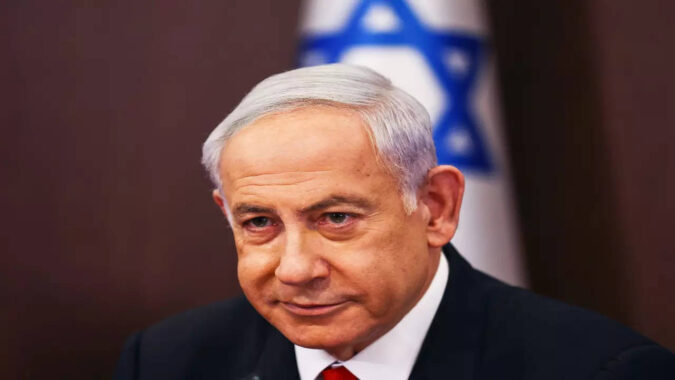JERUSALEM: Israeli prime minister Benjamin Netanyahu will delay the dismissal of his defence chief, announced over a week ago after the minister called for a halt to the government’s flagship justice overhaul, a source close the matter said on Monday.
Netanyahu announced he was firing Yoav Gallant on March 26, following Gallant’s public call to pause the bitterly contested plans for the judiciary, which opened social divisions he said were affecting the military and threatening Israel’s security.
The plan, which would see a tightening of government control over judicial appointments and give parliament the power to overturn many Supreme Court decisions, triggered unprecedented nationwide demonstrations, some involving military reservists saying they might refuse call-ups.
With tensions running high during the Muslim holy month of Ramadan, which this year coincides with the Jewish Passover, Netanyahu decided to hold off on replacing the former navy admiral until an unspecified time.
“Due to the present security situation, the issue of the firing of the defence minister will be determined at a later date,” a source close to the prime minister’s office said.
The news of Gallant’s abrupt dismissal, during a period of exceptional tension in the occupied West Bank and continuing concerns over Iran’s nuclear ambitions, triggered immediate mass protests, with tens of thousands pouring into the streets after the announcement.
As the protests continued amid mounting international alarm, Netanyahu relented and suspended the contested reforms to allow for compromise talks with opposition parties.
Political sources said there have been efforts in recent days to end the rift between Netanyahu and Gallant, whose potential firing had set off alarms within the ruling Likud party, the armed services and among Israel’s Western allies.
Gallant and Netanyahu made a public appearance together on Monday evening during a visit to a military base to toast troops for the Passover holiday.
“The most important thing, I’ll say it this way, is to leave politics at the base gate, to come together to defend the strength of Israel,” Netanyahu said.
Netanyahu announced he was firing Yoav Gallant on March 26, following Gallant’s public call to pause the bitterly contested plans for the judiciary, which opened social divisions he said were affecting the military and threatening Israel’s security.
The plan, which would see a tightening of government control over judicial appointments and give parliament the power to overturn many Supreme Court decisions, triggered unprecedented nationwide demonstrations, some involving military reservists saying they might refuse call-ups.
With tensions running high during the Muslim holy month of Ramadan, which this year coincides with the Jewish Passover, Netanyahu decided to hold off on replacing the former navy admiral until an unspecified time.
“Due to the present security situation, the issue of the firing of the defence minister will be determined at a later date,” a source close to the prime minister’s office said.
The news of Gallant’s abrupt dismissal, during a period of exceptional tension in the occupied West Bank and continuing concerns over Iran’s nuclear ambitions, triggered immediate mass protests, with tens of thousands pouring into the streets after the announcement.
As the protests continued amid mounting international alarm, Netanyahu relented and suspended the contested reforms to allow for compromise talks with opposition parties.
Political sources said there have been efforts in recent days to end the rift between Netanyahu and Gallant, whose potential firing had set off alarms within the ruling Likud party, the armed services and among Israel’s Western allies.
Gallant and Netanyahu made a public appearance together on Monday evening during a visit to a military base to toast troops for the Passover holiday.
“The most important thing, I’ll say it this way, is to leave politics at the base gate, to come together to defend the strength of Israel,” Netanyahu said.
